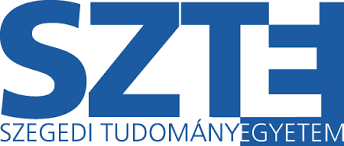
IC Member
Host of IOI 2023 Szeged, Hungary

The University of Szeged (SZTE) celebrates its 100th anniversary in 2021, however, it traces its origins back to 440 years. Its predecessor institution was founded by István Báthory, Prince of Transylvania and King of Poland, on 12 May 1581 in Cluj-Napoca. It was relocated in 1921 to Szeged, Hungary as “Hungary’s second university of science”. With the support of Kuno Klebelsberg, the Minister of Culture, the University of Szeged became the new “Göttinga by the river Tisza”. It was here that Nobel laureate Albert Szent-Györgyi carried out his research on biological combustion processes, with special reference to vitamin C and the catalysis of fumaric acid. It was also here that Katalin Karikó studied and earned her graduate degree in Biology, and later on her PhD in biochemistry. With her discovery of the mRNA technology, she paved the way for the development of the vaccine that played a key role in controlling the COVID-19 pandemic.
With more than 8,000 employees – including more than 2,200 teachers and researchers – and its 22,000 students, the University of Szeged is one of Hungary’s most popular and internationally ranked higher education institutions. SZTE has been ranked among the world’s top 400 universities in the latest Times Higher Education Impact Rankings, that measures and assesses university commitment to sustainability across four areas: research, stewardship, outreach and teaching. SZTE was ranked the best university in Hungary by the 2022 Quacquarelli Symonds (QS) rankings of higher education institutions, with an overall position of 551-560th. The University of Szeged was the first Hungarian higher education institution to be listed on the UI GreenMetric World University Rankings.
Students at the University of Szeged can choose from a large variety of programmes in 13 different fields of study, many offered in English, German, French and other languages. Currently more than 4,000 international students participate in one of the 70 full-time international study programmes. The R&D and innovation activities of the institution are internationally recognized, and SZTE has developed strategic relationships with industrial partners in the field of R&D&I, as well as the world’s most advanced laser centre, ELI-ALPS. SZTE’s clinical network serves the population of the cross-border region with internationally renowned medical education, research results and high-quality health care. The institution is one of Hungary’s most prestigious educational-, health-, scientific- and innovation centres, which – together with its vibrant cultural life – makes it one of the leading cultural, economic and intellectual centres of not only the Southern Great Plain region but the whole country. SZTE is a member of the EUGLOH (European University Alliance for Global Health) project, participates in the European University Association, as well as the SGroup European Universities’ Network.
Neumann Technology Platform (NTP)
Neumann Nonprofit Ltd. (NEUM) is a Budapest based 100% state-owned company, the founder of the Neumann Technology Platform (NTP) and a background institution of the Ministry of Economic Development, Hungary. The organisation has a wide portfolio in the field of digital transformation, it supports domestic industrial and public policy strategic developments and ensures the creation of operating conditions for thematic professional platforms. It plays a pioneer role in the creation of domestic thematic professional coalitions including all relevant national stakeholders that ensures the balanced development of the ecosystem of certain key technologies, with particular regard to 5G, Artificial Intelligence, blockchain, drones and Industry 4.0 technologies. The Neumann Technology Platform (NTP) is a professional framework operating in recognition of key competitiveness challenges, whose task is to disseminate industrial and technological applications for the SME sector as well as startups, large companies and public actors. The Platform promotes the change of the technological era, supports the establishment of the complete innovation system involving major industry, state, scientific and societal actors’ collaborations, ensures the quality of industrial technology processes and observes and incorporates international best practices to domestic industrial policy. The Platform pays special attention to the research of digital, industrial technologies and contributes to the development of ICT professionals/digital experts and specialists, the renewal of professional training programmes and the supply of skilled digital labour force.
TechEd Hungary Zrt.
Our focus is on educational technology.
Educational Technology (EdTech) has experienced extraordinary development in recent years. The objective of TechEd Hungary is to connect Hungarian and international players in the education and technology sectors. We strive to promote and showcase the best digital educational technologies from Hungary on an international stage, while introducing the finest international solutions to the Hungarian market.
To unify all Hungarian players in this field, we launched the EdTech Coalition, which serves its members by offering representation, assistance, and a forum for professional cooperation.
TechEd Hungary is the first Hungarian member of the European EdTech Alliance (EEA) and the Global Alliance of Technology and Education (GATE), where it represents not only the Coalition members but also the broader Hungarian educational sector.